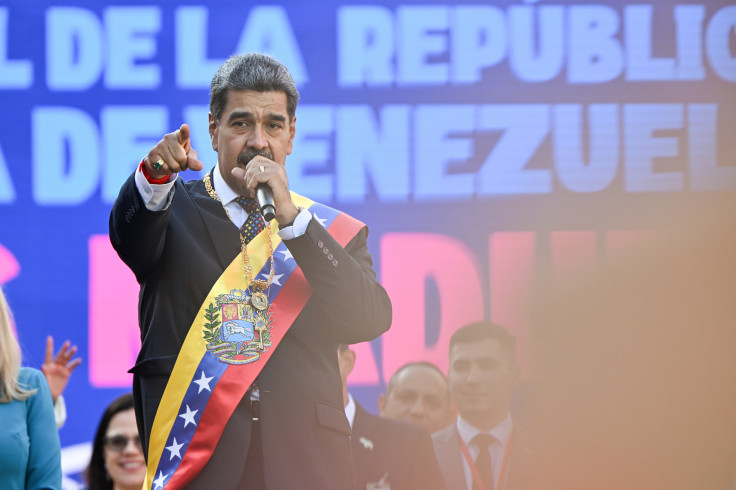
In late July, the U.S. Department of the Treasury's Office of Foreign Assets Control (OFAC) designated the Cártel de los Soles, a Venezuela-based criminal network allegedly tied to President Nicolás Maduro, as a Specially Designated Global Terrorist organization.
According to U.S. officials, Maduro and other senior members of his regime have facilitated drug trafficking operations into the United States and supported other criminal groups, including Tren de Aragua and the Sinaloa Cartel.
In a statement, OFAC said the Cártel de los Soles had "materially assisted, sponsored, or provided financial, material or technological support for, or goods or services to or in support of" the Sinaloa Cartel.
Mexican news outlet Milenio has reported that the Sinaloa Cartel has maintained a long-standing relationship with the Venezuelan group. That connection has surfaced in documented corruption cases involving Venezuelan authorities, including the 2015 arrest of two high-ranking officers in the Bolivarian National Guard.
At the time, Vassyly Kotosky Villarroel and Robert Alexander Pinto Gil were accused of providing protection and logistical support to Colombian and Mexican criminal groups moving narcotics to North America.
While the U.S. has identified the Sinaloa Cartel as a partner of the Cártel de los Soles, officials have not disclosed details about the nature or extent of that collaboration.
What Is the Cártel de los Soles?
Despite its name, the Cártel de los Soles is not a conventional drug cartel like the Sinaloa Cartel once led by Joaquín "El Chapo" Guzmán. Instead, it is a loosely organized criminal network embedded within Venezuela's military and political institutions that facilitates and profits from drug trafficking.
According to the investigative organization InSight Crime, the group operates across various branches of the Venezuelan military and is often shielded by, coordinated with, or even directed by political figures. The network and its leadership are constantly shifting, shaped more by military rotations and political loyalty than by any formal hierarchy
U.S. security agencies have identified Maduro as a central figure in the group, along with other senior Venezuelan officials, including Interior Minister Diosdado Cabello Rondón, former military intelligence chief Hugo Armando Carvajal Barrios, and former general Clíver Antonio Alcalá Cordones.
In June, Carvajal Barrios pleaded guilty in a U.S. court to conspiracy to import cocaine and participating in narco-terrorism in coordination with the Revolutionary Armed Forces of Colombia (FARC)—reinforcing allegations of ties between the Venezuelan government and transnational criminal organizations.
Sinaloa Cartel's Reach in South America
In its 2024 National Drug Threat Assessment, the U.S. Drug Enforcement Administration (DEA) stated that the Sinaloa Cartel operates in at least 47 countries and has a presence on every continent.
The report highlights the importance of the cartel's operations in South America to sustain its global drug trafficking network. According to the DEA, the Sinaloa Cartel maintains long-standing connections with cocaine producers in the region and manages the shipment of thousands of kilograms of the drug into Mexico, where it is then trafficked to the United States, Europe, and Oceania.
The DEA also noted that the cartel has "permanent contingents" of associates stationed throughout Central and South America who coordinate cocaine shipments and oversee the importation of precursor chemicals used to manufacture fentanyl.
© 2025 Latin Times. All rights reserved. Do not reproduce without permission.







